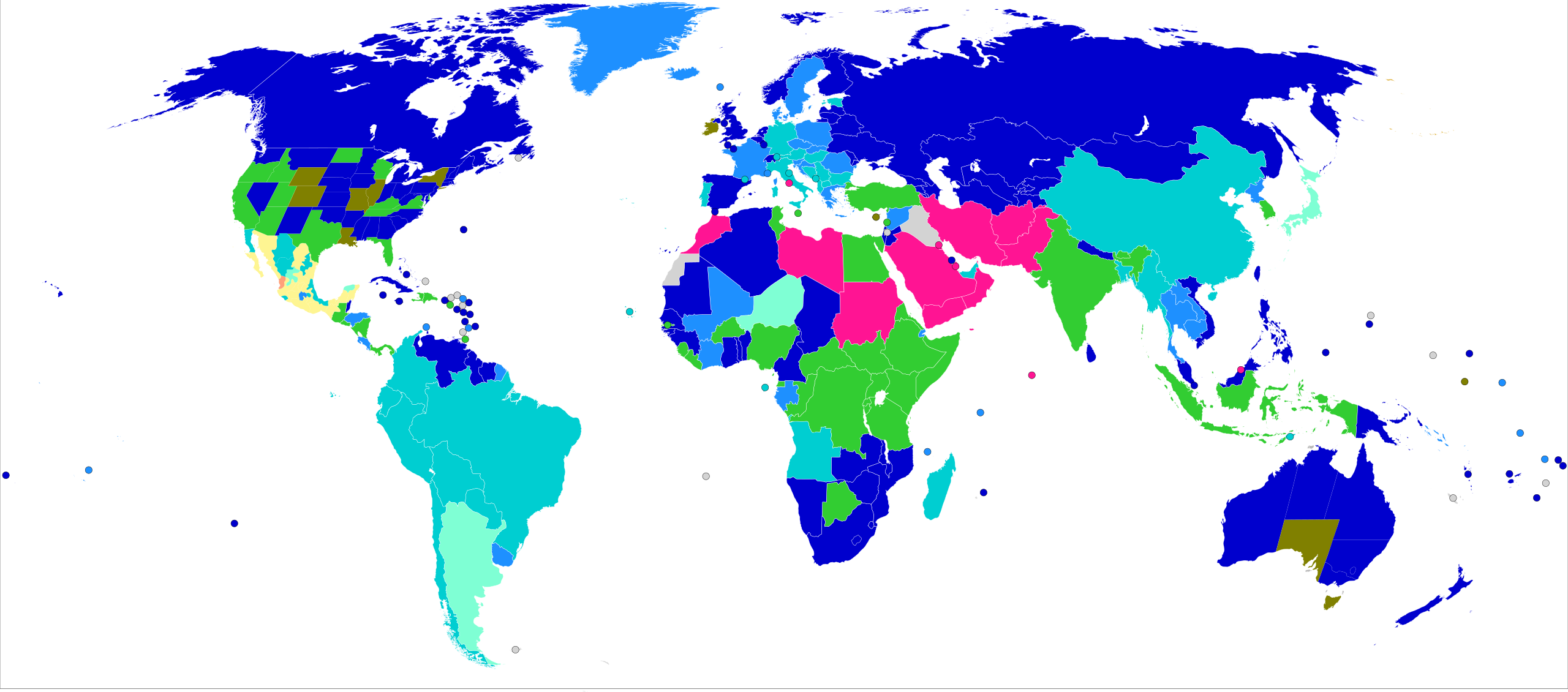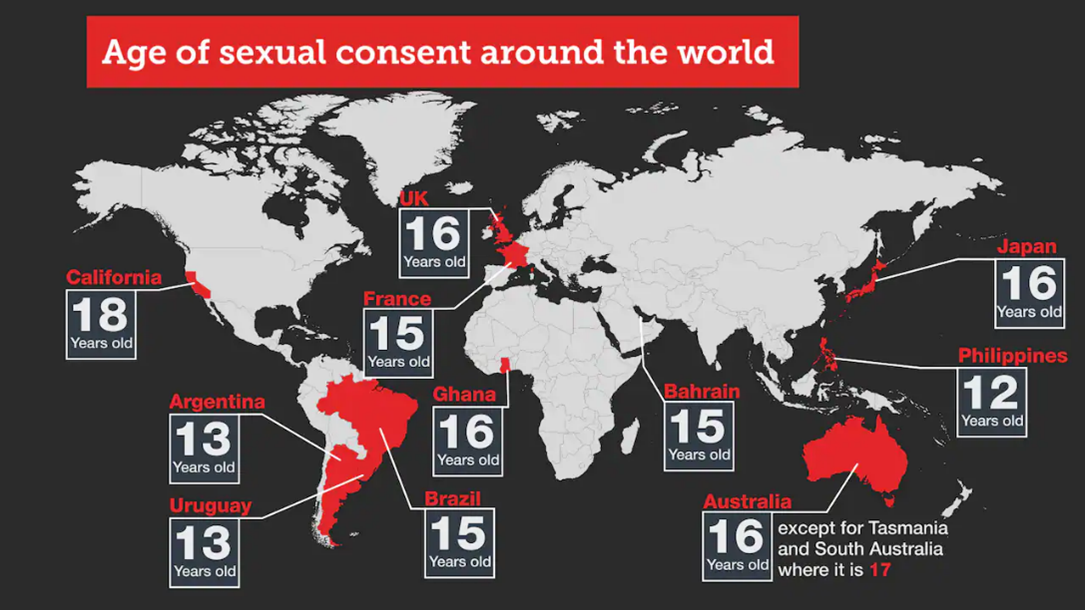When it comes to discussing the age of consent in Russia, the topic dives deep into legal, cultural, and societal aspects that shape the nation's laws. This isn’t just about numbers or statutes—it’s about understanding the context behind these regulations. Whether you’re a legal scholar, traveler, or simply someone curious about global laws, knowing the ins and outs of Russia’s age of consent is crucial. Let’s break it down together, shall we?
Legal frameworks surrounding the age of consent vary widely across the globe. In Russia, this issue is no exception. It’s not just about knowing the number; it’s about understanding why that number exists and how it fits into the broader framework of Russian law. This topic might seem straightforward at first glance, but trust me, there’s more to it than meets the eye.
Now, before we dive deeper, let’s set the stage. The age of consent in Russia isn’t just a legal matter—it’s also tied to cultural norms, historical context, and even political influences. This article aims to provide you with all the info you need while keeping things engaging, so buckle up. We’re about to explore a world where laws meet culture, and numbers meet narratives.
Read also:Daisy Phoenix Rising Star In The Spotlight
Understanding the Basics of Age of Consent
The concept of age of consent might sound simple, but it’s actually a complex web of legal, social, and ethical considerations. At its core, the age of consent refers to the age at which an individual is legally considered capable of consenting to sexual activities. This varies from country to country, and even within regions of the same country.
What Defines Age of Consent?
Defining age of consent involves more than just setting a legal age. It encompasses psychological maturity, societal norms, and even historical precedents. For instance, some countries base their age of consent on the idea of protecting minors from exploitation, while others focus on ensuring equal rights for all individuals regardless of age.
- Psychological readiness plays a significant role in determining the age of consent.
- Cultural attitudes toward relationships and sexuality influence these laws.
- Historical precedents often shape the current legal framework.
Age of Consent in Russia: The Legal Framework
In Russia, the age of consent is officially set at 16 years old. This means that individuals aged 16 and above are legally allowed to engage in consensual sexual activities without facing legal repercussions. However, as with many legal systems, there are nuances and exceptions to this rule.
Exceptions and Special Cases
While the general age of consent in Russia is 16, there are certain exceptions to consider. For example, if both parties are close in age, the law might not prosecute consensual acts between them. Additionally, certain regions within Russia may have their own interpretations of these laws, influenced by local customs and traditions.
Read also:Tw Pornstar The Rise Of Talent Fame And Influence In The Digital Age
- Close-in-age exemptions can prevent legal action in consensual relationships.
- Regional variations might exist, though the federal law sets the standard.
Historical Context of Age of Consent in Russia
To truly understand the current state of age of consent laws in Russia, we need to look back at its history. The legal age has evolved over time, reflecting changes in societal values, political climates, and international influences.
How Historical Events Shaped the Law
Throughout history, Russia’s approach to age of consent has been influenced by various factors. For example, during the Soviet era, the focus was on collectivism and state control, which impacted how these laws were crafted. In more recent years, globalization and increased awareness of human rights have played a role in shaping the current framework.
- Soviet policies emphasized state control over personal matters.
- Modern influences prioritize individual rights and protections.
Cultural Perspectives on Age of Consent
Culture plays a significant role in shaping perceptions of age of consent. In Russia, traditional values often intersect with modern ideals, creating a complex landscape when it comes to this topic.
Traditional vs Modern Views
While some segments of Russian society hold onto traditional views about relationships and sexuality, others embrace more progressive attitudes. This clash of perspectives can sometimes lead to debates and discussions about whether the current age of consent reflects the needs and values of the population.
- Traditional views emphasize family and community roles.
- Modern views focus on individual autonomy and rights.
Legal Implications and Penalties
Violating the age of consent laws in Russia can result in severe legal consequences. It’s essential to understand these implications to avoid any potential issues.
Possible Penalties for Violations
Penalties for violating age of consent laws in Russia can include hefty fines, imprisonment, and even registration as a sex offender. The severity of the punishment often depends on the specific circumstances of the case, such as the age difference between the parties involved and the nature of the relationship.
- Fines and imprisonment are common penalties for offenders.
- Sex offender registration might apply in serious cases.
International Comparisons
Comparing Russia’s age of consent laws with those of other countries provides valuable insights into global trends and differences.
How Russia Stacks Up Against Other Nations
While many countries have similar age of consent laws to Russia, others vary significantly. For example, some European nations set the age of consent as low as 14, while others, like the United States, have varying ages depending on the state. These differences highlight the diverse approaches countries take when addressing this issue.
- Some countries have lower ages of consent than Russia.
- Others maintain stricter regulations and higher ages.
Public Opinion and Social Reactions
Public opinion on age of consent laws in Russia is as varied as the population itself. Different groups have differing views on what the appropriate age should be and why.
Voices from Different Sectors
Activists, legal experts, and everyday citizens all weigh in on the topic, often leading to lively debates. Some argue for lowering the age to align with modern realities, while others believe maintaining or raising it ensures better protection for minors.
- Activists push for reforms based on human rights principles.
- Experts analyze the effectiveness of current laws.
Recent Developments and Future Trends
As society continues to evolve, so too do the laws surrounding age of consent. Recent developments in Russia indicate potential changes on the horizon.
What’s Next for Age of Consent Laws?
With increasing awareness of issues like consent and protection, there’s a growing movement to revisit and possibly revise existing laws. Future trends may see a shift toward more comprehensive legislation that addresses not only the legal age but also the broader context of consent and relationships.
- Ongoing discussions may lead to legislative changes.
- Focus on education and awareness could shape future laws.
Conclusion: Taking Action and Staying Informed
Understanding the age of consent in Russia goes beyond knowing the legal number. It’s about recognizing the cultural, historical, and social factors that influence these laws. By staying informed and participating in discussions, we can contribute to creating a safer, more equitable society for everyone.
So, what’s next? If you found this article helpful, feel free to share it with others who might benefit from the information. And if you have any thoughts or questions, drop them in the comments section below. Together, let’s keep the conversation going!
Table of Contents
- Understanding the Basics of Age of Consent
- Age of Consent in Russia: The Legal Framework
- Historical Context of Age of Consent in Russia
- Cultural Perspectives on Age of Consent
- Legal Implications and Penalties
- International Comparisons
- Public Opinion and Social Reactions
- Recent Developments and Future Trends
- Conclusion: Taking Action and Staying Informed


